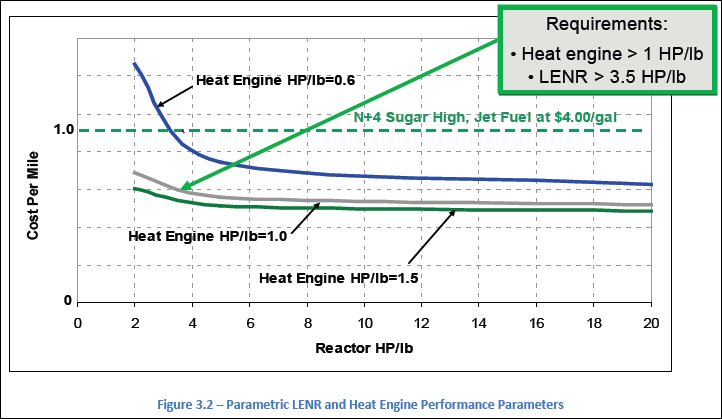Boeing and NASA Look at LENR for Green-Powered Aircraft
Aug. 3, 2012 – By Steven B. Krivit –
New Energy Times has obtained a May 2012 document that reveals that Boeing Research and Technology, in association with NASA, is looking at low-energy nuclear reactions for future green-powered aircraft.
The interest in LENRs by Boeing is an indicator of the field’s growing recognition as a serious area of research that may help bring about carbon-free and waste-free energy.
The document, “Subsonic Ultra Green Aircraft Research Phase-II: N+4 Advanced Concept Development,” was written by Marty K. Bradley and Christopher K. Droney of Boeing Research and Technology and prepared for NASA Langley Research Center.
The document is the result of a team effort by Boeing Research and Technology, Boeing Commercial Airplanes, General Electric and Georgia Institute of Technology’s Aerospace Systems Design Laboratory to identify and analyze advanced concepts and technologies for aircraft that may fly in the 2030-2035 timeframe.
Members of the team met in person and virtually, on June 22 and 23, 2011, in a workshop. Attendees of the workshop included representatives of the Federal Aviation Authority and Virginia Tech.
The team recognized well-known features of LENR: high power density, reduced emissions and low environmental impact. The report speculates that the heat-engine power versus weight from LENR-based engines could offer a significant cost savings — 33 percent less than a conventionally powered aircraft.

Parametric LENR and Heat Engine Performance Parameters (NASA image)
The report states, “The group identified that the LENR concept could have tremendous benefits, but the technical risks are extremely high” and that “a breakthrough in nuclear technology would have a significant impact on the entire worldwide energy structure.”
The only questionable matter in the report is its mention of Leonardo Corp. and Defkalion as offering commercial LENR systems. In fact, the two companies have delivered no LENR technology. They have failed to provide any convincing scientific evidence and failed to show unambiguous demonstrations of their extraordinary claims. Click here to read New Energy Times’ extensive original research and reporting on Andrea Rossi’s Leonardo Corp.
Defkalion is a Greek company that based its technology on Rossi’s claimed Energy Catalyzer (E-Cat) technology. People who have contacts with Defkalion say that the company is moving to Vancouver, B.C., Canada. Defkalion’s business activity with Rossi goes back to at least Dec. 28, 2010, a few weeks before Rossi held his first of 13 failed public demonstrations. (See Master Timeline.) Because Rossi apparently has no real technology, Defkalion is unlikely to have any technology, either.

